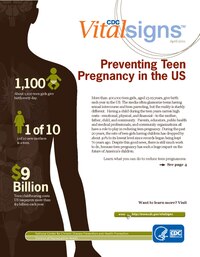
Photo from wikipedia
Background Adolescent pregnancy and motherhood have been linked to several factors stemming from social, cultural and to a large extent economic issues. This study examined the socio-economic factors associated with… Click to show full abstract
Background Adolescent pregnancy and motherhood have been linked to several factors stemming from social, cultural and to a large extent economic issues. This study examined the socio-economic factors associated with adolescent pregnancy and motherhood in Ghana. Design This was a secondary analysis of the 2017 Ghana Maternal Health Survey, which was a nationally representative cross-sectional survey. Data from 4785 adolescents aged between 15–19 years were included in the analysis. Adolescent pregnancy was defined as adolescents who have ever been pregnant, whiles adolescent motherhood was defined as adolescents who have ever given birth. Weighted logistic regression was used to assess the association between the socio-economic variables and adolescent pregnancy and motherhood. Results Of the 25062 women aged between 15 and 49 years included in the 2017 maternal health survey, 4785 (19.1%) were adolescents between 15–19 years. Adolescent pregnancy was reported in 14.6% (CI:13.2% -16.1%) of the respondents, whereas 11.8% (CI: 10.5% -13.1%) of the respondents had ever given birth. In the multivariate regression analysis, zone (p<0.001), wealth index (p<0.001), age (p<0.001), marital status (p<0.001) and level of education (p<0.001) were all significantly associated with adolescent pregnancy and motherhood. The odds of pregnancy and motherhood were significantly higher in the Middle and Coastal zones (p<0.001), and among older adolescents (p<0.001). However, the odds of pregnancy and motherhood was significantly lower among adolescents from households with the highest wealth index (p<0.001), among those who were never married (p<0.001) and among adolescents who had secondary/higher education (p<0.001). Conclusion Several socio-economic variables including education, household wealth, marital status and zone of residence were significantly associated with adolescent pregnancy and adolescent motherhood. Sexual and reproductive health education should be intensified among these populations. Adolescent friendly corners should be made available and accessible to all adolescents in Ghana irrespective of where they live or their age.
Journal Title: PLOS ONE
Year Published: 2022
Link to full text (if available)
Share on Social Media: Sign Up to like & get
recommendations!